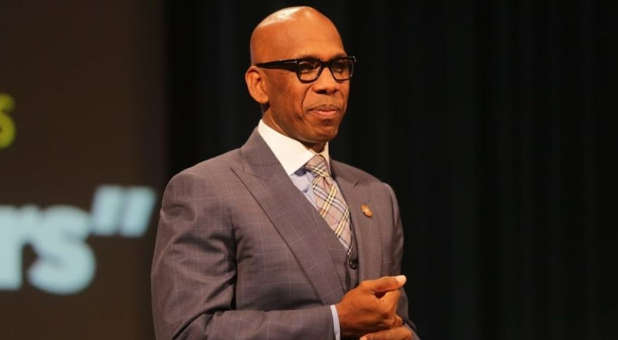Seek First to Understand
Just when it seems we need it most, empathy appears in decline throughout the world. When we exhibit high empathy, we behave with compassion and easily experience someone else’s point of view.
Empathetic behavior doesn’t occur by force. It is an internal response to the needs and feelings of others.
As we look over our shoulder at simpler times, does it seem we demonstrated more or less empathy? We can blame the coronavirus for this malady as we do so many other things, but perhaps the virus only slowed us down enough to observe our diminished focus on others.
In a recent Greenelines podcast interview with Bishop Joseph Walker, he and I discussed empathy in this season of racial unrest. He told me, “There can be no empathy until you are fully informed. I think what we are seeing is often misdiagnosed. We now have the opportunity to have serious discussions, to look at the history of a situation and place it in proper context,” he said.
Walker spoke specifically about the empathy needed to understand racial divides.
“A lot of folks did not grow up around others who did not look like them. So, they are limited. They have no contextual awareness of what it means to live in those particular neighborhoods to experience the kind of racism and oppression that others experienced,” he said.
“They want to, but it’s hard until they have those conversations. And then, of course, I’ve seen folks who just absolutely don’t want to get it who just continue to carry the stereotypes and misinformation about why people are the way they are. There are incredibly kindhearted people out there who really want to get it right who say, in all honesty, ‘I just don’t know.’ This is a perfect opportunity to be a student of this, and it’s an opportunity to realize if you could just sit back and listen to your brothers and sisters of a different hue, you would learn so much about what it’s like to be in their skin and what it’s like to experience what they’ve had to experience, not just in their lifetime, but the ancestors as well,” he said.
Empathy often leads to action. Walker spoke about an important program in Nashville designed to accelerate unity.
“The Lord allowed us to create Nashville Unite. We pulled together a combination of influencers, police captains, political leaders, judges and many others who joined us for a meaningful conversation. People came to hear, and we heard. Hearing is so important. If you don’t hear me, then you might see me in other ways,” he said.
“We gave people an opportunity to come alongside and partner with us to help the community. We are also involved with the school system. We must get involved to solve the problems of our community. Talking about it is not enough. You must come alongside folks if you really want to do something and solve problems,’ Walker said.
I took away from our interview, which you can listen to at this link, an improved understanding of empathy: “What diminishes you, diminishes me, and what hurts you, hurts me.” {eoa}




























